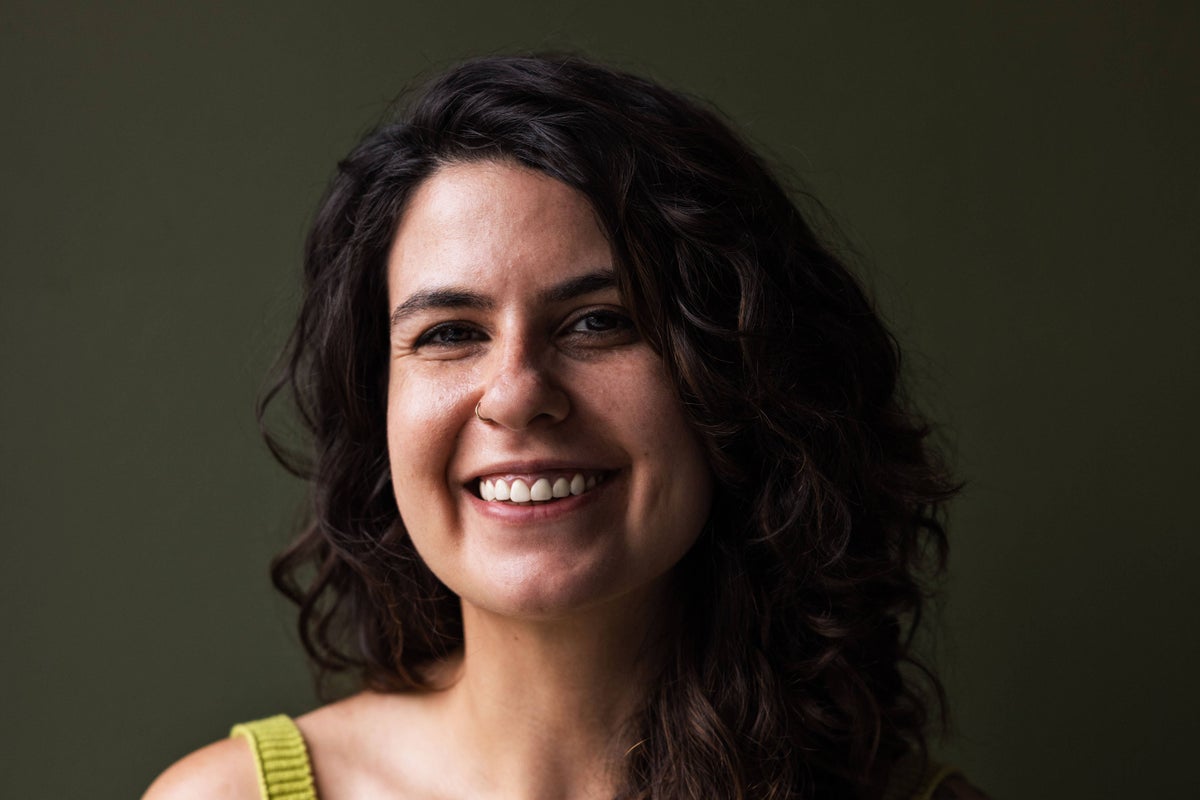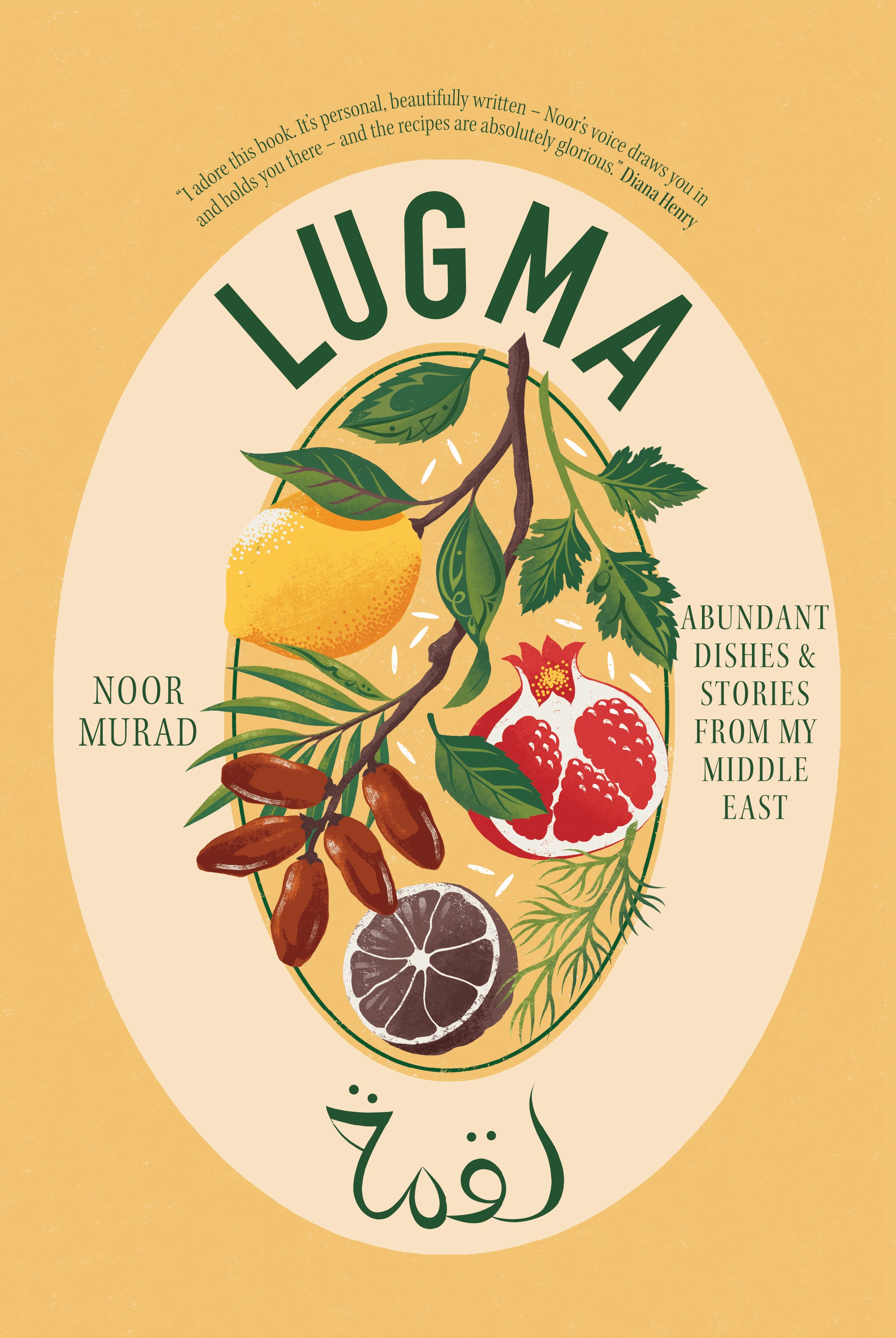
There’s about a month to go until the London Marathon (27 April), when around 50,000 runners will take to the streets of the capital – chef and cookbook author Noor Murad will be among them.
“I have been training for a very long time. I’ve done quite a few half marathons and 5Ks and 10Ks, but I’ve never really tackled that distance. It always seemed ridiculous to me,” she says, sounding like she’s still stunned that her name actually got picked in the ballot.
So now, Murad is having a very exciting spring; the release of her first solo cookbook, Lugma, this month, then the marathon, and it’s rice that’s powered her through both. “Rice is my favourite carb. It is the centre of the table,” says Murad, who hails from Bahrain, where “there’s always a grand rice dish, or a side rice dish or something with rice,” involved, whatever the meal. “It’s not native to the land, but it became adopted through trade,” she explains. And it turns out this most beloved grain is also the best training carb (move over, pasta). “It gives you that energy, but it is also easy to digest,” she says.
The same goes for dates, particularly the ones her father grows and picks from his own trees, back in Bahrain. Every September, at harvest time, he plies her with the sweet, moreish nuggets, and she blitzes through them. “I was like, ‘Oh my god, I’ve gone through like, four kilos of dates in September’. But my dad had a really good harvest this year. They actually just got to the UK and he brought with him another lot.” This time, she’s eking them out for marathon day.
Rice and dates (particularly date molasses) are crucial to Murad’s food, as are olive oil, yoghurt and her can’t-live-without-ingredient, black limes (limes that have been so thoroughly dried by the sun, that they turn black and hard). These are the items to stock up on before sitting down to read Lugma, which translates from Arabic as “bite”.
Murad worked at Ottolenghi for seven years, starting out in the deli before going on to run the test kitchen and writing two Ottolenghi cookbooks. But Lugma is all her. “It’s the book I’ve always wanted to write,” she says. Doing it alone made her think constantly: “Is this recipe really me? Is this a reflection of me, or is this a box ticked because I need a carrot recipe? It really made me be very honest with myself!”
She describes her cooking as full of “quite bold flavours, very comforting dishes, it’s a bit rustic, definitely an amalgamation of East and West. There’s Middle Eastern flavours in everything I make, but I do tend to change traditional dishes a bit, mixing my two cultures and my food.”

Born and raised in the “very hot” and “small but mighty” Bahrain, Murad’s father is Bahraini and her mother is English, so she has inherited a love of Marmite and lemon and sugar pancakes from her mother, alongside those dates and black limes.
The day we speak happens to be Pancake Day, a very important day in Murad’s childhood. “My mum, she brought with her her own Britishness, as much as she could when we were growing up,” she remembers. “There were two things that she really hung on to: Pancake Day and Christmas. Those are distinct memories in my mind, and now, when I look back, it’s like, I get the Christmas part, but Pancake Day?! She just loves pancakes, in the French crepe style.” And so, pancakes have made it into Lugma, “but obviously, I add my own twist, burnt honey and pistachios and lime – it’s an ode to my mum”.
Nostalgic stories from Murad’s childhood are woven throughout the book, including the sandwiches her mum would pack for their family trips to a magical sounding “vanishing island”. “It was basically just a sandbank, but there was something just so lovely about it,” she recalls. “We set off early in the morning. My sister and I were so little at the time, we’d go in a little boat with a cabin, and we’d all sleep on the same bed. My dad would anchor it overnight. We’d watch the sunset and then watch the sunrise and go home, but it was so exciting for me.
“It was this trip to an island – a strip of sand – that would just disappear and then appear. And back then Bahrain wasn’t as overpopulated as it is now, there weren’t that many people there, so sometimes there would just be no other soul. It was just us.”
She makes Bahrain sound otherworldly, but writing a cookbook and drawing on the flavours and history of the wider Middle East, when the region is in such turmoil, and when food can feel like little consolation to those facing grief, bloodshed and displacement, is, Murad acknowledges, difficult. “It is a lot. Writing the book at a time where the Middle East was all over the headlines, it was confusing for me as well,” she says, but that doesn’t mean the region can’t be celebrated and better understood through its food.
“What I really want people to take from the book is just how diverse the Middle East is, and how rich and colourful the culture and the food and the languages are,” she says with feeling. “It’s so different depending on the region. You can’t really paint the whole region with one brush. There’s so much to say, and there’s so many different people to say it.”
‘Lugma’ by Noor Murad (Quadrille, £28).







